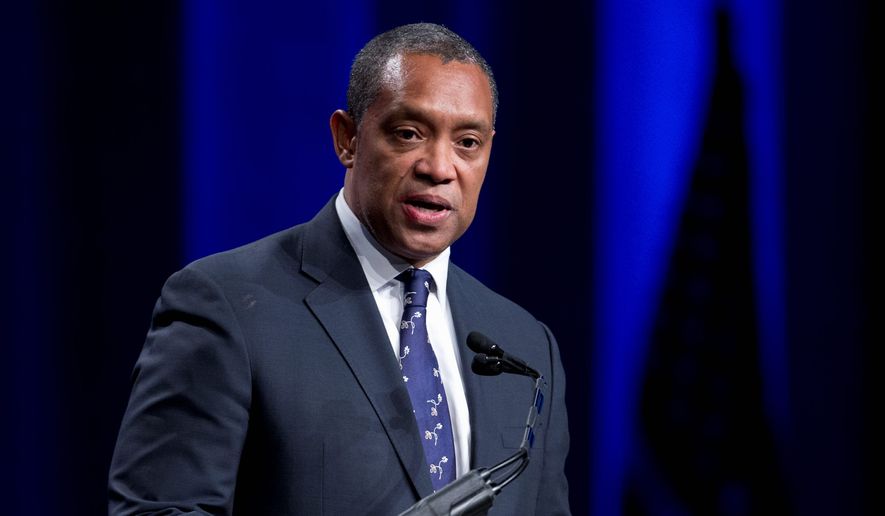The D.C. Office of the Attorney General has dismissed some cases and requested continuances in others as it works through a review of about 14,000 criminal and juvenile cases that were potentially compromised by a flaw in the city police department’s data management system.
Attorney General Karl Racine provided an update of the ongoing review of cases to determine the scope of information from police reports that may have been inadvertently withheld from criminal defense attorneys, but he declined to say how many cases have been dismissed as a result.
He did note that his office is bringing in outside help to assist in the large-scale review.
Mr. Racine estimates his office has handled 11,000 criminal cases and 3,000 juvenile cases since the Metropolitan Police Department began using the troubled I/Leads program in January 2012, but he does not believe the entirety of the agency’s caseload is in jeopardy.
“By no means do I want to suggest at all that there are problems with production of documents in all of those cases,” Mr. Racine said Friday. “It’s unlikely that we’re talking about problems in the thousands at all. But in order to make sure that folks have the full benefit of their constitutional rights we’re going to reach out to every criminal defendant who was adjudicated by prosecutors in the Office of the Attorney General.”
Mr. Racine also announced that defense attorney Habib Ilahi, of the law firm of Schertler and Onorato, would join his office for 13 months to assist in the I/Leads review. He declined to say how much Mr. Ilahi would be paid.
SEE ALSO: D.C. Fire Department putting 10 more ambulances in service for busier shifts
The U.S. Attorney’s Office, which prosecutes local crimes in both D.C. Superior Court and U.S. District Court, also is making progress in its review of cases handled during the time I/Leads was in use.
Bill Miller, a spokesman for U.S. Attorney for the District Ronald C. Machen Jr., said the office has filed notices in 70 federal cases involving more than 150 defendants to provide case-by-case updates on their progress.
The 70 cases only include those before U.S. District Court Judge Emmet G. Sullivan, who specifically requested that prosecutors file status updates in each case that came before him during that time.
In only a handful of those cases is the prosecutors’ office continuing to examine the evidence contained in the I/Leads-generated police report for any omissions. In other cases, prosecutors have determined that no data were improperly withheld from defense attorneys.
“We are continuing to review our federal and Superior Court cases to determine what action, if any, needs to be taken,” Mr. Miller said.
Prosecutors are required by law to share with defendants any evidence that could be favorable to the accused; however, officials worried that flaws in the police data system could have caused prosecutors to withhold evidence from defendants.
SEE ALSO: Ibiza nightclub faces bankruptcy in trendy D.C. area
Officials said data entered into police reports since MPD began using the I/Leads system in January 2012 were not always showing up on the final report that the department hands over to prosecutors. Those reports could include things like suspect descriptions or witness accounts.
The Office of the Attorney General began investigating problems with the Metropolitan Police Department’s I/Leads system in January after an issue was discovered during a trial in a drunken-driving case. Mr. Machen went public with the issue on March 16, the same day he announced he would be retiring.
The police department has begun turning over printed reports containing all information in the original police reports to assist in the review.
Some defense attorneys who have received the documents have complained that the information is difficult to use, with information from each entry box on the computerized report printed out on a single sheet of paper — resulting in print outs an inch-and-a-half thick for one report.
Mr. Racine said prosecutors are turning over to defense attorneys the same information they have to work with.
• Andrea Noble can be reached at anoble@washingtontimes.com.




Please read our comment policy before commenting.